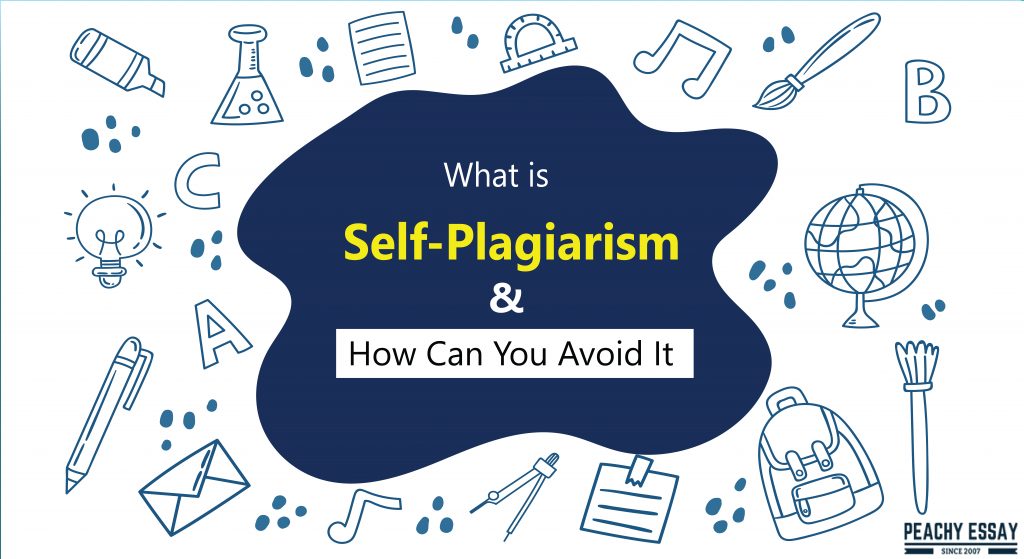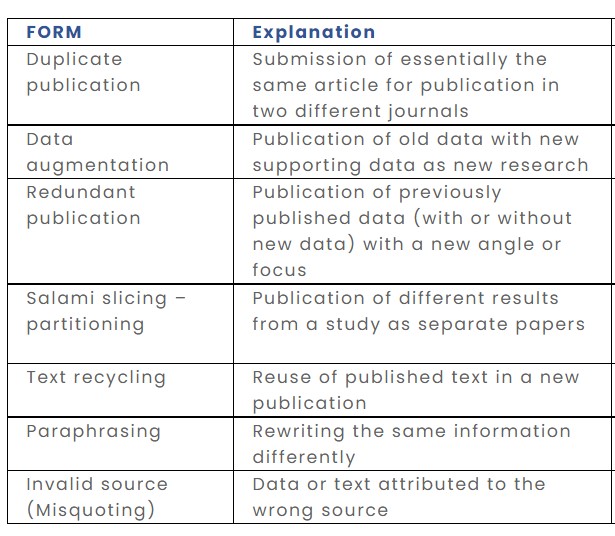Self-plagiarism can be a tricky concept. On the one hand, it may seem impossible to steal your ideas at the same time, while on the other hand, it is dishonest to pass off old ideas as new ones. Whenever you are participating in academic research, self-plagiarism can be a serious issue as it misrepresents when your ideas were first shared thus conflicting with copyright if you publish the same passages in different journals.

Furthermore, the concept of self-plagiarism can lead to many questions arising, but there is a definition and reasons to avoid it in your research paper.
Defining self-plagiarism

Generally, self-plagiarism is known as recycling or raising your own specific words from previously published text. However much it does not cross the line of theft of other ideas, it nonetheless creates issues in the scholarly publishing world. Other times, self-plagiarism goes beyond verbatim parts of the text, whereas self-plagiarism refers to the publication of one identical paper in two different places.
But what if I accidentally self-plagiarize? Well, self-plagiarism is not usually accidental so much as a misunderstanding of journal copyrights. Why? Authors in different fields and cultures tend to think of the previous texts they have written before as theirs is on the verge of ending permanently. However, once they publish the journal, they have transferred all the copyright to another journal. At the point of publishing, the right to publish perspective, the text is never there. So, while the author might think there is nothing ethically wrong with using “their text,” a publisher puts themselves in legal jeopardy if they publish text that another journal owns the copyright to.
The question of using someone else’s original idea and claiming it as your own is what defines regular plagiarism, and self-plagiarism the lines are somewhat blurry. This is because here, the original idea was also your own and you are not claiming anyone else’s work without credit. You are, however, borrowing without giving the original author, i.e. yourself, due credit. Let us find out what self-plagiarism includes.
# For more details read our article at https://sonicpapers.com/exploring-plagiarism-3-ways-of-understanding-and-preventing-plagiarism-academic-dishonesty/ to understand the various types of plagiarism and how to avoid them.#
What does self-plagiarism include?

Also known as auto plagiarism, can be committed in several ways, including:
Presenting or submitting a manuscript for publication in a journal, entailing data and verbatim text passages taken from work that has been published without citing or acknowledging yourself as the author.
Assume you have assigned a topic that you had previously done, and you aced it, you might be tempted to reuse the paper you submitted before as the present one, right? Well, if that is the case then it is still considered plagiarizing as you will be reusing work and presenting it as an original idea. Additionally, reusing some parts or all of an old assignment directly without proper citation is also self-plagiarism.
Self-plagiarism: Illegal or unethical

Since you are not stealing or copying someone else’s work, it may seem like plagiarism is not a serious offense. However, it is not illegal to self-plagiarize, it is certainly unethical. Why is this? This is because even though it is your original word, you are passing on old ideas as new ones. When someone is conducting institutionalized academic research, self-plagiarism can be a serious issue as institutions always provide funds and other resources like laboratory and library access from original research and do not recycle old ones.
Consequently, it can also lead to misinterpretation of ideas from the time they were conceived and lead to copyright breach if the same content is published. Therefore, unlike other categories of plagiarism, self-plagiarism is not illegal, however, it is unethical to publish content without proper citations.
How to avoid self-plagiarism
Is it possible to avoid self-plagiarism? As a student, you may ask yourself how to evade self-plagiarizing yourself. Here are some guides on how you can avoid self-plagiarism:

The first step you can take to avoid self-plagiarism is to understand what constitutes plagiarism, for instance, you may not be mindful of the fact that paraphrasing an idea without giving due credit is a form of plagiarism. Do you know that even incorrectly or insufficiently appropriating a work is considered plagiarism? Therefore, the best way to avoid plagiarism is to be clear on what plagiarism is so that you can organically check yourself if you are straying toward plagiarism while writing your manuscript.
- Organization and planning
When you are assigned a paper that should be submitted in a few weeks, you need to start early and plan your paper and topic well in advance. If you do not start early and procrastinate, it can have dire consequences as it will sometimes make you wait till the submission deadline and at this point, recycling a previously written paper always feels like an easy way out. Therefore, planning early will save you from the temptation of reusing your previous paper thus avoiding self-plagiarism.
- Use plagiarism detection tools!
This is one of the easiest ways to check and avoid submitting plagiarized work. There are several plagiarism checker tools available online from basic ones to those powered with AI-based technology. For instance, AI Grammar and Enago’s Plagiarism Checker, are globally top-ranked plagiarism checkers that follow a double-pronged approach to help students, scholars, faculty, and other academic organizations eliminate plagiarism and grammatical errors in one go. Other plagiarism checkers include Turnitin.
However, your effort to avoid self-plagiarism does not mean you can’t use ideas from your previous papers. If you came up with a good idea in your previous assignment, you should feel free to grow that idea in a new class and let it develop into an even better idea. This way, you are building upon previous efforts and advancing your learning. One final piece of advice: Self-plagiarism is taken just as seriously as other forms of plagiarism. You can risk your grade on an assignment, a class, or even your entire degree if you do not write new, fresh material for each course.


